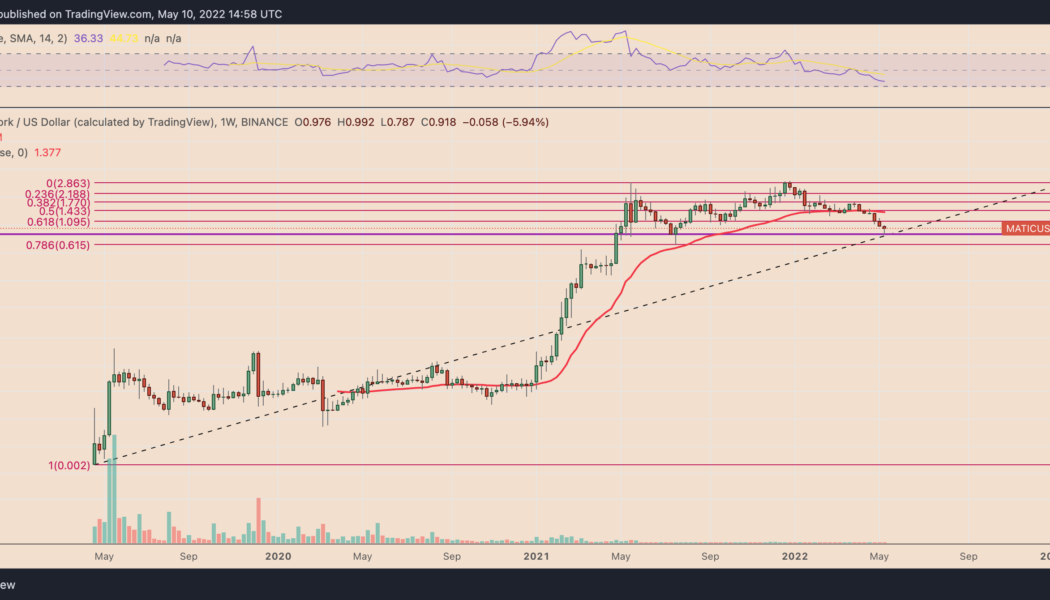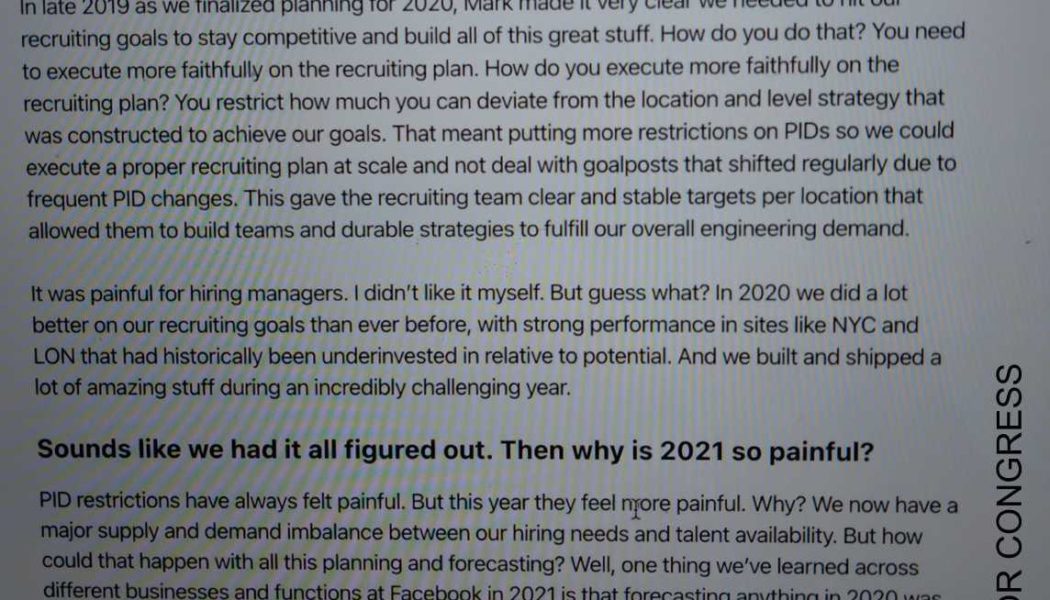Meta
WhatsApp is Dropping Support for these Apple iPhone Devices
We use cookies on our website to give you the most relevant experience by remembering your preferences and repeat visits. By clicking “Accept All”, you consent to the use of ALL the cookies. However, you may visit “Cookie Settings” to provide a controlled consent.
Meta trademark filing hints at plans for crypto payments platform
Social media giant Facebook’s parent company, Meta, may be planning to launch a payments platform with support for cryptocurrency. According to records submitted to the United States Patent and Trademark Office, or USPTO, on May 13, Meta filed five applications for its namesake to be used in a platform called Meta Pay. The filings included Meta’s name for use in a “online social networking service for investors allowing financial trades and exchange of digital currency, virtual currency, cryptocurrency, digital and blockchain assets, digitized assets, digital tokens, crypto tokens and utility tokens.” Meta Platforms Inc. (i.e. Facebook) has filed 5 new trademark applications for: “META PAY” The filings indicate that @Meta plans to launch a payment platform called &#...
Fireblocks introduces Web3 Engine with developer tools to accelerate ecosystem growth
As the world accelerates towards a decentralized future, Fireblocks, a digital assets custody platform, announced the launch of their new Web3 Engine to help foster the development of the Web3 ecosystem. The company announced on Tuesday that the dedicated Web3 engine includes a set of tools for developers to create products and services in decentralized finance (DeFi), GameFi and nonfungible tokens (NFTs). Fireblocks has also opened up a world of decentralized apps (DApps), exchanges, NFT marketplaces and more for alternative asset managers and capital market participants. “Web3 is the future,” said Michael Shaulov, CEO of Fireblocks, adding that “we’ve already entered a new era of the Internet.” Shaulov said that for the Web3 ecosystem to continue to develop, the communi...
Former Kenyan Content Moderator Sues Facebook Over Alleged Poor Working Conditions
We use cookies on our website to give you the most relevant experience by remembering your preferences and repeat visits. By clicking “Accept All”, you consent to the use of ALL the cookies. However, you may visit “Cookie Settings” to provide a controlled consent.
Polygon reaches level that last time triggered a 275% MATIC price rally — will history repeat?
Polygon (MATIC) price reversed course to the upside on May 10 after testing $0.794 as its interim support, thus rising by up to 25% to $0.99. The rebound occurred a day after the token slumped over 17% to reach $0.787, its lowest level since July 2021, amid a global market crash led by the U.S. Federal Reserve’s hawkish policies. MATIC price rebounded after undergoing five days of relentless declines, attracting buyers around the same support level that had preceded a 275% bull run last year. MATIC/USD weekly price chart. Source: TradingView A previous retest of the $0.787-level in July 2021 and the 0.786 Fib line (near $0.61) of the Fibonacci retracement graph — drawn from the $0.002-swing low to 2.86-swing high — followed up with MATIC rising to its record high of $3...
WhatsApp Rolls Out Emoji Reactions
We use cookies on our website to give you the most relevant experience by remembering your preferences and repeat visits. By clicking “Accept All”, you consent to the use of ALL the cookies. However, you may visit “Cookie Settings” to provide a controlled consent.
Facebook to Stop Hiring New Employees
We use cookies on our website to give you the most relevant experience by remembering your preferences and repeat visits. By clicking “Accept All”, you consent to the use of ALL the cookies. However, you may visit “Cookie Settings” to provide a controlled consent.
Dfinity Foundation files lawsuit against Meta over infinity logo
Lawyers for Dfinity Foundation, a Switzerland-based nonprofit behind the Internet Computer blockchain, have filed a lawsuit against Facebook’s parent company Meta for trademark infringement over its infinity logo. In a Friday court filing with the United States District Court for the Northern District of California, Dfinity’s legal team claimed Meta Platforms was registering use of its logo, which also uses the mathematical symbol for the concept of infinity, “in some of the same or similar areas in which Dfinity has already obtained registration for its mark.” According to the blockchain firm, Meta filed an application with the U.S. Patent and Trademark Office, or USPTO, in March 2022, while the same office granted Dfinity registration in October 2018. Dfinity’s legal team also said the c...
Meta’s Reality Labs posts $2.9B loss: ‘I recognize it’s expensive’ says Zuck
Meta Platforms Inc., formerly known as Facebook Inc., posted its Q1 2022 earnings on Wednesday, with its Metaverse-focused Reality Labs division posting increased losses. The Reality Labs division — formerly known as Facebook’s Oculus division — has been spending increasing sums of capital on developing virtual reality and metaverse-related products, posting a $2.9 billion loss for Q1 2022. That’s 61% more than its $1.8 billion loss in Q1 2021. Overall Reality Labs revenue came in above expectations, seeing $695 million in revenue during the first quarter of this year from the sales of things like VR headsets and Meta Portal hardware. In a Wednesday earnings call, Meta CEO Mark Zuckerberg said losses in this division are to be expected, owing to the fact that Reality Labs is still la...
Meta’s Reality Labs posts $2.9B loss: ‘I recognize it’s expensive’ says Zuck
Meta Platforms Inc., formerly known as Facebook Inc., posted its Q1 2022 earnings on Wednesday, with its Metaverse-focused Reality Labs division posting increased losses. The Reality Labs division — formerly known as Facebook’s Oculus division — has been spending increasing sums of capital on developing virtual reality and metaverse-related products, posting a $2.9 billion loss for Q1 2022. That’s 61% more than its $1.8 billion loss in Q1 2021. Overall Reality Labs revenue came in above expectations, seeing $695 million in revenue during the first quarter of this year from the sales of things like VR headsets and Meta Portal hardware. In a Wednesday earnings call, Meta CEO Mark Zuckerberg said losses in this division are to be expected, owing to the fact that Reality Labs is still la...
Instagram Announces it is Testing a New Way to Make Creating Reels Easier
We use cookies on our website to give you the most relevant experience by remembering your preferences and repeat visits. By clicking “Accept All”, you consent to the use of ALL the cookies. However, you may visit “Cookie Settings” to provide a controlled consent.
Facebook whistleblower warns Metaverse will repeat ‘all the harms’
Facebook whistleblower Frances Haugen has taken aim at Meta in a new interview, suggesting that its version of the Metaverse will simply repeat all of its past mistakes. In an interview with Politico, Haugen said: “They’ve made very grandiose promises about how there’s safety-by-design in the Metaverse. But if they don’t commit to transparency and access and other accountability measures, I can imagine just seeing a repeat of all the harms you currently see on Facebook.” In 2021 Haugen leaked thousands of internal documents from Facebook to the Securities and Exchange Commission and The Wall Street Journal. Her experience working for the company has left her with concerns about privacy issues and about letting the corporation amass data about every aspect of u...



















